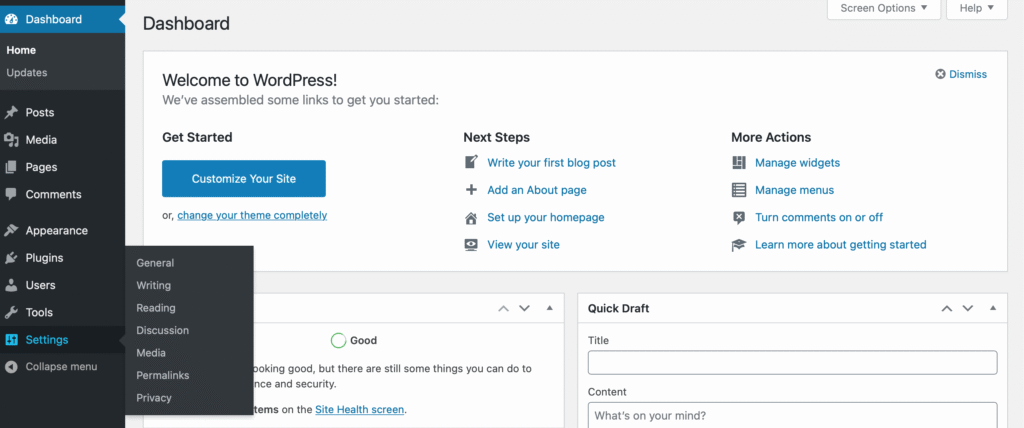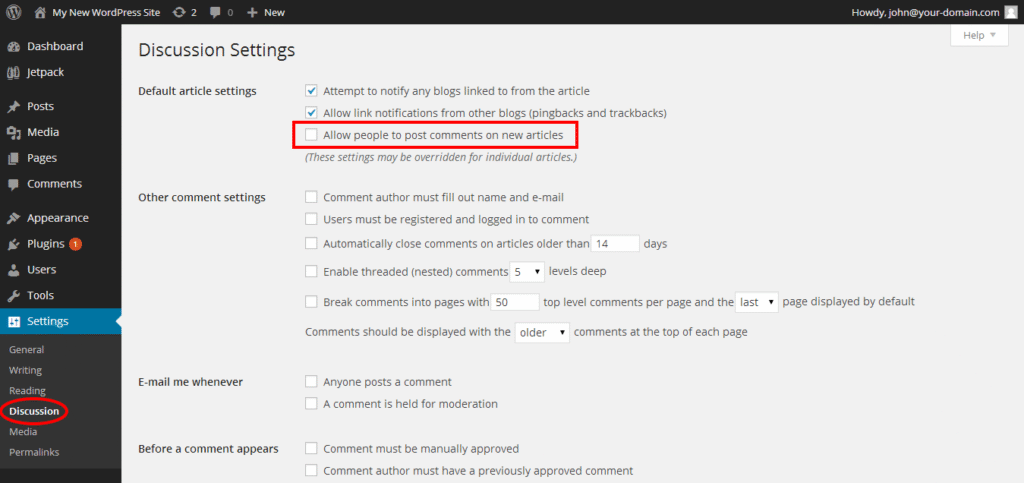How to Disable Comments on WordPress: Easy Methods to Stop Spam and Improve Site Performance
Managing a WordPress site means staying on top of every detail, including the comments section. Sometimes I want to keep the conversation going, but other times, disabling comments is the best move for keeping things tidy or avoiding spam. Whether I’m running a personal blog or a business site, knowing how to control comments gives me peace of mind.
Turning off comments in WordPress isn’t as complicated as it might seem. With just a few clicks, I can stop unwanted feedback and keep my site looking exactly the way I want. Let me walk you through the simplest ways to disable comments, so you can focus on creating great content without distractions.
Reasons to Disable Comments on WordPress
Spam prevention motivates many site owners to turn off comments. Spam comments often include links to low-quality websites, irrelevant promotions, or malicious content. Automated bots target high-traffic WordPress sites, resulting in constant moderation and decreased site trust.
Brand protection drives some users to disable comments on WordPress. Negative or offensive remarks can harm a brand’s reputation, reduce credibility, and deter visitors. Regulated industries—for example, healthcare, finance, and online casinos—frequently restrict or block comments to avoid compliance risks tied to user-generated content.
Content focus enhances the reader’s experience by removing distractions. Long comment threads may divert attention away from the core content, especially on blogs, portfolios, or business websites where discussions aren’t essential.
Site performance improves when discussion features are deactivated. Fewer server requests lead to faster page loads. For resource-heavy sites with thousands of posts, comment management may noticeably slow down backend workflows.
| Reason | Example Contexts | Primary Benefit |
|---|---|---|
| Spam Prevention | News blogs, public forums | Cleaner site, less moderation |
| Brand Protection | Healthcare, finance, online casino sites | Maintained reputation |
| Content Focus | Personal portfolios, business pages | Improved user engagement |
| Site Performance | High-traffic blogs, resource-heavy websites | Faster load times |
Methods to Disable Comments on WordPress
WordPress lets me control comments in several ways so I can tailor engagement across my site. I use the following methods for comprehensive comment management.
Using WordPress Settings

I adjust site-wide comment controls in the WordPress Discussion Settings. Here’s how I manage the main options:
| Setting | Effect | Navigation |
|---|---|---|
| Default Post Comment | Turns off comments for new posts | Settings > Discussion |
| “Allow people to comment” | Enables or disables for future content | Settings > Discussion |
| “Automatically close” | Disables comments on posts older than X days | Settings > Discussion |
I uncheck “Allow people to submit comments on new posts” to globally disable future comments. I select “Automatically close comments on articles older than” and set a preferred day limit for aging content.
Disabling Comments on Individual Posts or Pages
I use post or page editing screens to switch comment permissions for specific content:
- I open an individual post or page in the Editor.
- I click “Discussion” in the settings panel.
- I uncheck “Allow comments” to disable feedback on that particular item.
I repeat these steps for multiple posts or pages if I want selective comment control.

Using a Plugin to Disable Comments
I install a plugin, such as “Disable Comments” (over 1 million active installs; source: WordPress.org), for broader or more complex needs:
| Plugin | Key Features | Location |
|---|---|---|
| Disable Comments | Disables globally or post type-specific | Plugins Repo |
| WPCode | Adds custom code to modify comment settings | Plugins Repo |
I activate the plugin, then select my preferred configuration, choosing to remove comments everywhere or only on posts or pages.
With these methods I keep my WordPress site’s comments fully controlled, consistent with engagement and moderation goals.
Additional Considerations When Disabling Comments
Disabling comments changes site interaction and impacts how users engage with content. The following considerations help maintain control and site quality after comments are turned off.
Impact on Community Engagement
Turning off comments impacts user involvement and community dialogue. Visitors can’t share feedback or questions directly under posts. Sites reliant on audience interaction, such as online magazines or educational platforms, often see a decline in community engagement when comments are disabled. Alternative engagement tools like contact forms or social sharing plugins, for example Contact Form 7 or ShareThis, frequently replace comment-based interaction.
| Site Category | Typical Engagement Level | Common Alternatives |
|---|---|---|
| News/Magazine Blogs | High | Social media threads |
| Educational Websites | Moderate | Forums, contact forms |
| eCommerce Stores | Low | Product reviews |
| Portfolio Sites | Low | Direct inquiry forms |
Managing Existing Comments
Existing comments remain visible unless they’re deleted or hidden. Removing comments retroactively requires manual action or using bulk management plugins, like “WP Bulk Delete.” Leaving old comments visible can cause confusion if new ones aren’t allowed. To maintain clarity, I often recommend either disabling comment visibility or providing a note explaining the change.
| Comment Status | User Perception | Recommended Action |
|---|---|---|
| Comments Visible | May expect interaction | Add note about comment closure |
| Comments Hidden/Deleted | Understand disabled | Use plugin for bulk deletion |
Casino-Specific Comment Policies
Casino-related sites in the US face strict regulations governing user content and interaction. Operators often disable comments to comply with gambling laws or licensing terms. Disabling comments reduces the risk of users posting promotional, unverified, or age-inappropriate content that can trigger regulatory scrutiny.
| Casino Site Type | Regulatory Risk | Comment Policy |
|---|---|---|
| Online Casinos | High | Comments disabled |
| Casino Reviews | Moderate | Moderated or disabled commentary |
| Gambling Forums | High engagement risk | Strict moderation |
Disabling comments on WordPress sites, especially when running a casino or other regulated site, helps mitigate liability and preserves compliance.
Conclusion
Choosing to disable comments on my WordPress site lets me shape the kind of experience I want for my readers. It’s a practical step for anyone who values control over their site’s content and community. With the right tools and a clear strategy, I can keep my site focused, professional and free from unwanted distractions.